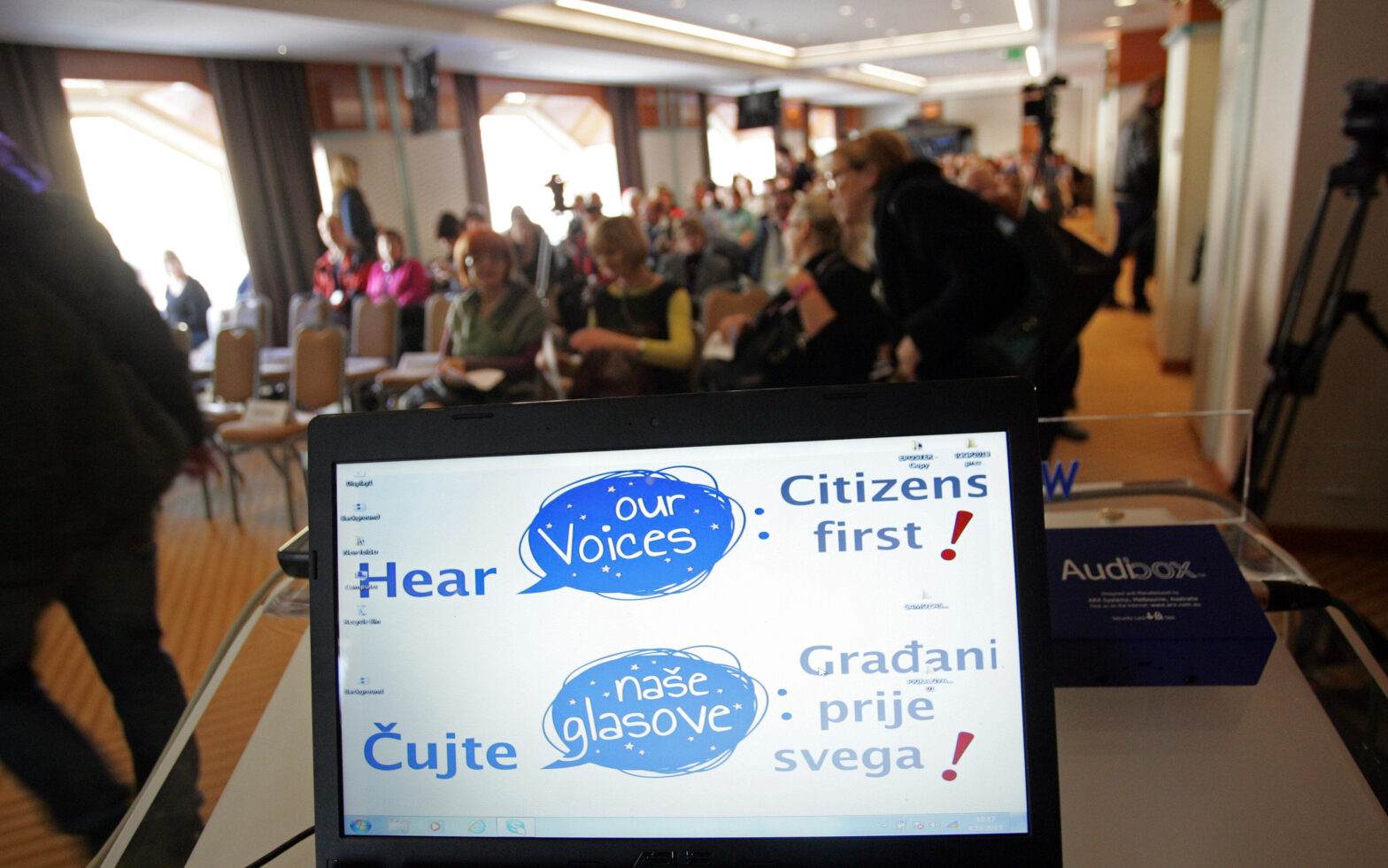Disability, legal capacity, living independently in the community, getting married and starting a family, what to do after finishing school, closing institutions, the right to decide, how to influence society – all of this things taken for granted among so called «normal» people, mean the world for people with intellectual disabilities.
And as self advocates they fight for them every single day as they shown it at the European conference «Hear our voices – Citizens first!» that took place in Zagreb last weekend and one of the participants was Helene Holand with whom we talked about the role and life of self-advocates in her home country Norway but also in the Europe.
Helene Holand has been on the Board of Inclusion Europe since 2007. She has extensive experience in advocating for the rights of persons with intellectual disabilities. She has held a number of honory posts and has been elected to various committees. In 2000, she was elected as a member of the National Executive Committee of the Norwegian Association for Persons with Developmental Disabilities (NFU).
Are there in Norway and rest of the Europe other groups of self-advocates and what is their social impact?
Helene: In Norway we have a self-advocacy group as a group in the national organization for people with developmental disability (NFU). Many European organizations have groups for self-advocates like NFU, in other countries there are independent organizations for self-advocates. Many of these organizations are members of EPSA, the European Platform for Self Advocates.
Their social impact will varies from country to country, but my experience is that the first step is to be a member of a self-advocacy group. That gives the person an better self-esteem. The next step is to advocate for the rights for themselves and the group of people with an intellectual disability.
Do people with intellectual disabilities in rest of the Europe have right to make decisions about their lives, such as family formation and marriages among people with intellectual disabilities?
Helene: In many European countries people with intellectual disabilities can make decisions in their everyday lives. In Norway they have the right to do so, and they do, if necessary with support.

What European policies are particularly important for people with intellectual disabilities, their families and their organizations, especially when it comes to housing, concerning the debate about the institutional and alternative accommodation?
Helene: EU has ratified the convention on the right for people with disability. The implementation of the convention is now an important issue for all disabled peoples organizations.
Article 12 Equal recognition before the law and Article 19 Living independently and being included in the community. These two articles have a special focus for adults with an intellectual disability and Self Advocates.
People with disabilities in Croatia this year for the first time got the opportunity to vote in European and local elections – what is the situation in this field in the rest of the Europe and world?
Helene: I don’t know the situation in the whole Europe, but for the last 20 years the organizations in the Nordic countries has had the focus on the democratic rights for people with an intellectual disability; They have had the right to vote and the organization have trained them in how to use their vote.
What would be your final key note – since this is the European year of citizens what do people with intellectual disabilities want and what kind of support they need to be able to exercise their human and civil rights?
Helene: As a citizen the right to live independent and being included in the community (Article 19) is important. That include the right to vote and the right to decide for yourself (not to be under guardianship) and to have the support you need.
